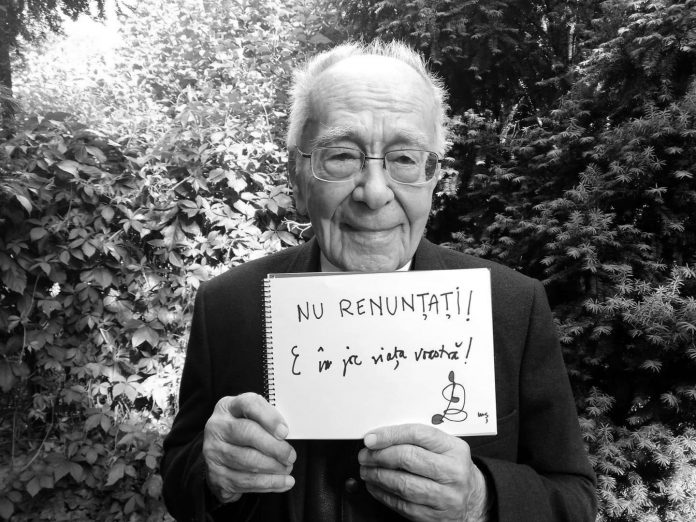The philosopher and essayist Mihai Șora died on Saturday at the age of 106, according to a statement published on his Facebook page by his wife, Luiza Palanciuc Sora.
„Mihại Sora
𝟕 November 1916 – February 28, 2024
My love,
You were pure happiness: not just a beautiful person, but Beauty itself, faith, hope and love, as the apostolic word says. I will never be grateful enough for everything you have given me for almost two decades. You have taken me off the rails of my destiny and bound me irrevocably and harmoniously to yours with a grace of which only you were capable and which not many earthlings can comprehend with their mind or heart.
I don’t know what tomorrow will look like, nor what will follow. It’s beyond what I can accept. Some people should live forever – not only in heaven, where you will surely stand, but also on this blue dot, the blob of water and dirt that floats in space and on which eight billion other people – but none like you – live together, fight or love each other, they fight or they support each other.
It’s cold without you, my love.
Today”
Mihai Șora, born November 7, 1916 in Ianova, Remetea Mare, Timiș, during the Austro-Hungarian Empire, was a philosopher and essayist, a founding member of the Social Dialogue Group, the Civic Alliance and the Romanian Society of Phenomenology.
He attended the C. Diaconovici Loga High School in Timisoara (1927-1934) and the Faculty of Philosophy at the University of Bucharest (1934-1938).
In 1939 he became a philosophy student at the Sorbonne, receiving a scholarship from the French government, then, due to the German occupation, continued his studies at the University of Grenoble (1940-1945), where he completed his doctoral thesis on works by Blaise Pascal. He then settled in Paris and was appointed research assistant at the Center National de la Recherche Scientifique in Paris, Department of Philosophy (1945-1948).
He returned to Romania in 1948 and was forced to stay, according to the source cited. He worked as a clerk in the press service of the Ministry of Foreign Affairs (1948-1950), then was head of the literary department of the foreign language publishing house affiliated to the Romanian Institute for Cultural Relations with Foreign Countries (1951-1950). 1954), editor-in-chief of the „literature heritage” department of the State Publishing House for Literature and Art, where he continued the series „Biblioteca pentru toti”, „Scriitori romani” etc. (1954-1969), and was head of the library service in the Ministry of Education (1970- 1977), from which he retired.
He was the first Minister of Education after the fall of the communist regime and was a member of the government led by Petre Roman. He resigned from his post in protest against the mine attacks of June 13-15, 1990 and thereafter refused to hold any other office in the state administration.
His works include: Du dialog intérieur: Fragment d’une anthropologie metaphysique, (1947), Salt of the earth (1978), To be, to do, to have, (1985), Eu&tu&el&ea. .. or the generalized dialogue (1990), Firul ierbii (1998), Câteva crochiuri si evocări (2000), Locuri commone (2004), Clipa & time (2005).

















